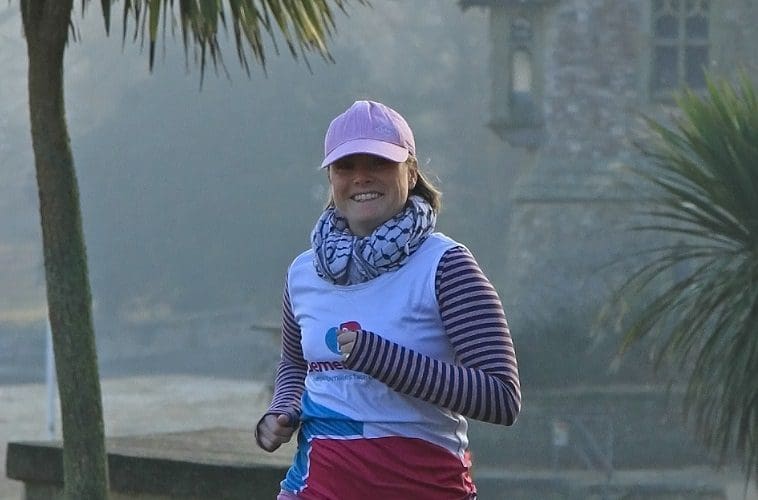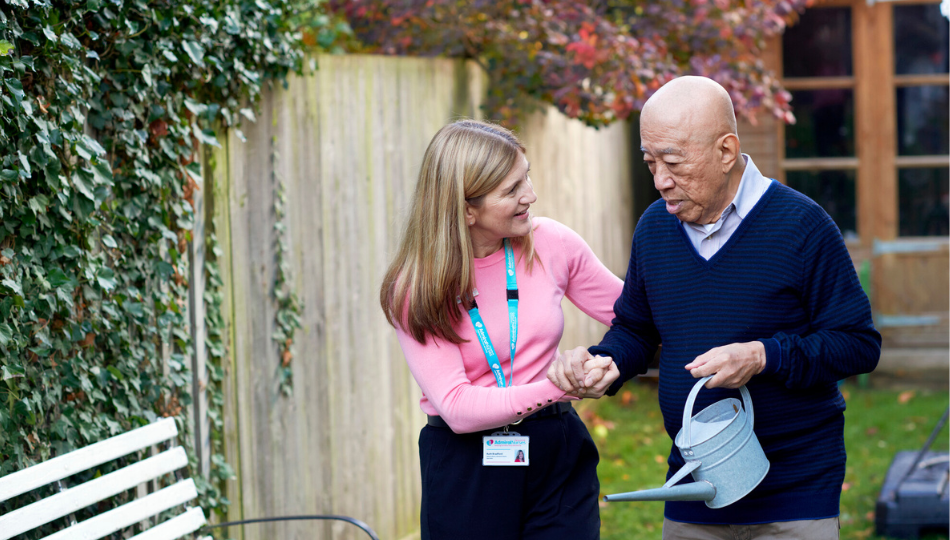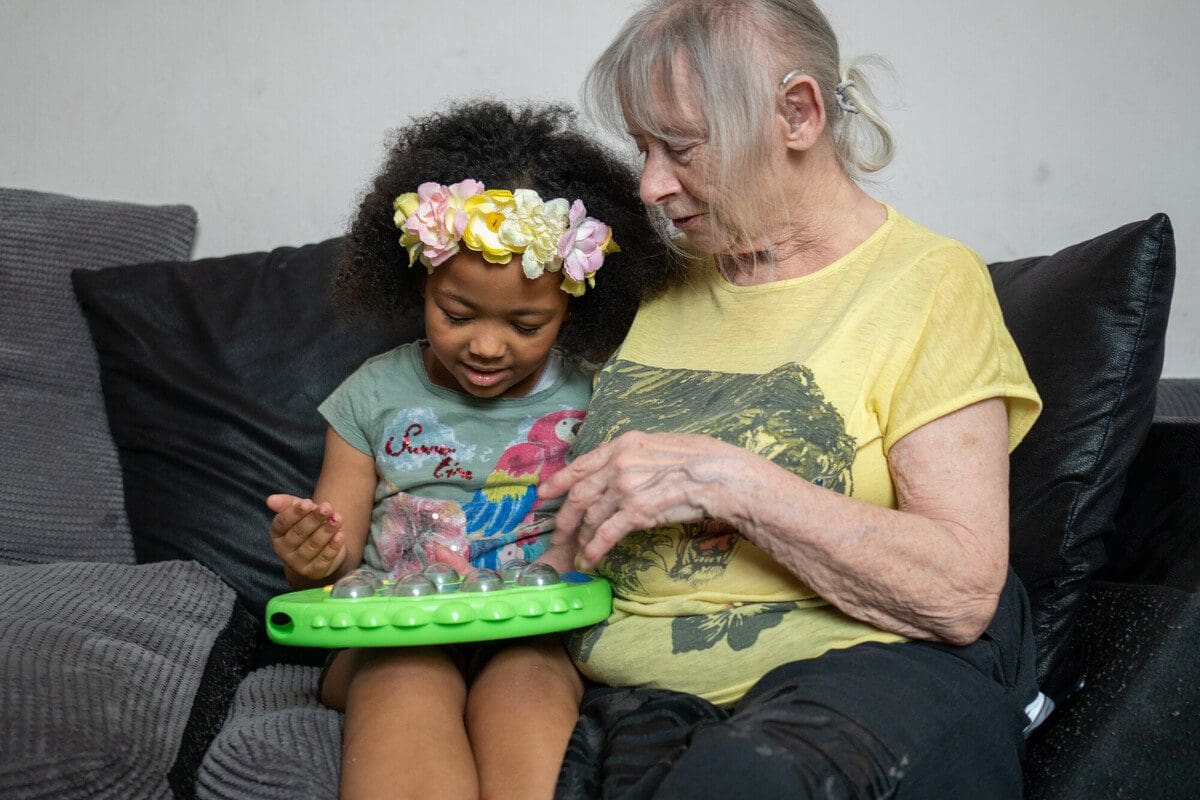
Take part in an event
Whether you run 10km, cycle for miles or trek up a mountain, you can take on a challenge and fundraise for families facing dementia.
Admiral Nurse Lindsay White on why she is running the Brighton Marathon to raise funds for Dementia UK.

I wouldn’t necessarily say I am an experienced runner, but I am very keen. It’s one of my favourite pastimes and it allows me to stay fit and clear my head. In the past, when I ran a half marathon, my training went so well that I actually ran past the finish line. This time, training has been tougher but I feel like I’m making progress.
When my family heard I was taking on the Brighton Marathon they knew it would be a big challenge, but also knew how much being able to raise funds for Dementia UK meant to me.
When I was 15 my maternal grandmother started to show signs of dementia; she was only 55 years old. She actually recognised the signs before we did. For many years, she had looked after her own mum, who also had dementia.
She experienced first hand the difficulties and challenges it brought. My grandmother became so exhausted towards the end that the doctors advised she put her mum into a hospice. My grandmother didn’t want to see her family go through the same thing.
Watching her endure this was heart-breaking, it took over her life. She became frightened, angry and easily frustrated, she was always ‘on the go’ day and night, looking for something, trying to find a way to make sense of what was happening. She often cried in front of friends and family, something she had never done before. The dementia stripped her of her independence; she lost all sense of being and identity.
Around the same time as my grandmother started to exhibit symptoms I began volunteering in nursing and residential homes, feeding people with dementia and singing to them to soothe their nerves. Since then, I’ve always wanted to be a nurse, with the hope that one day I would be able to specialise in dementia. Throughout my training, and from experience gained over the years, I feel there is a lack of understanding about dementia and not enough support for families and professionals caring for people with the disease.
My grandfather was her main carer, he was always exhausted. We would help when we could, and he would get a little respite – time to sleep or watch television without interruption. My mother found it difficult to manage, as she worked fulltime, whilst raising a family of six. There never seemed enough hours in the day to give my grandfather the support he needed.
During this time, we had never heard of an Admiral Nurse, the support given was limited and every day seemed like a battle. I believe an Admiral Nurse would have been hugely beneficial for my grandfather and my family. It wasn’t until things had reached the point of crisis that the support began to appear. My grandfather fell ill and the help offered to him by social services was very good. In the end, my grandmother needed to be put into full time care. However, it was the better option, the home even offered a room for my grandfather. Sadly, he passed away shortly after my grandmother went into the home.
Since September 2016 I have been an Admiral Nurse. I wanted to become one in order to make a difference in how we deliver care and support for individuals with dementia and their families. This role allows me gain further knowledge and insight into dementia and allows me to give expert, practical, clinical and emotional support, not only to families and carers, but also to those professional looking after individuals on a day-to-day basis.
It is so important to have more Admiral Nurses because there are so many people living with dementia. It is estimated that on the Isle of Wight, where I work, there are 3,000 people living with dementia. To put this into perspective, there are currently only five Admiral Nurses, all of whom have a case load of 50+. Having more Admiral Nurses will help us reach out to many more people at an earlier stage before crisis sets in. This can help reduce hospital admissions, emotional and physical breakdowns and allow us to have more time to provide training to all professionals caring for people with dementia.
Since becoming an Admiral Nurse, one of the main things carers appreciate and find extremely beneficial is knowing that we are there at the end of the phonefor support and advice, if and when needed. I have found the most important thing many of my clients value is being listened to by someone who has the knowledge and understanding about what they are going through. For someone to show empathy and understanding, and to communicate with other professionals on their behalf if needed.
Many people just want time to talk, offload any concerns or worries and ask questions. Each carer has one main goal: to make sure the person they are caring for gets the best quality of care possible.

Whether you run 10km, cycle for miles or trek up a mountain, you can take on a challenge and fundraise for families facing dementia.

Help us raise vital funds, improve care and support for families facing dementia and spread the word about our specialist dementia nurses.

Sharing your story with Dementia UK can help to inspire and reassure others who may be going through similar things.